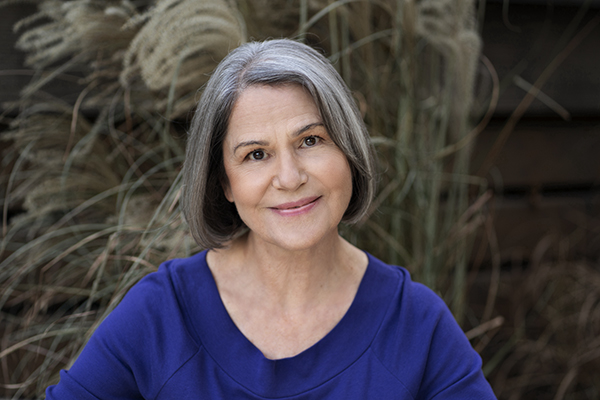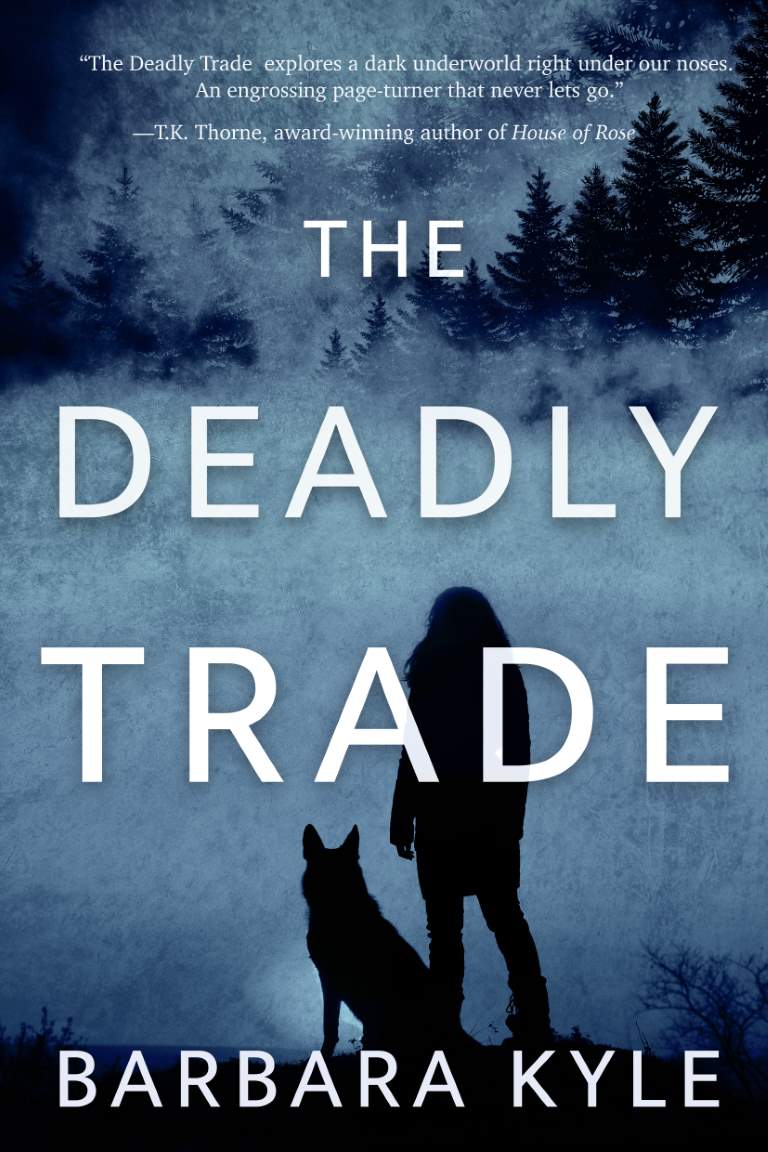by Barbara Kyle

Barbara Kyle
Perhaps not. But a novel can, and does, change people’s hearts, and therefore their minds. After that, each of us must forge thought into action.
The brave, clear-eyed actions of people who fight for animal welfare – people like those at Animal Alliance of Canada whose motto is “fighting cruelty wherever we find it” – inspired my novel The Deadly Trade and its heroine, an animal rights activist. The story highlights the illegal global trafficking in wild animals, a brutal business in which profits rival those of the drug trade.
The Chinese proverb says, “a journey of a thousand miles begins with one step.” If The Deadly Trade stirs readers’ empathy for animals, and – even better – inspires them to support the work of activist organizations, I’ll proudly cheer that step in humanity’s journey toward truly sharing the world with our fellow creatures.
“Kyle masterfully weaves together mystery, suspense, and advocacy in a thought-provoking and heart-pounding thriller. A taut and timely page-turner.”
– C.S. O’Cinneide, author of the Candace Starr series
The Deadly Trade features Natalie Sinclair who has dedicated her life to animal rescue. From lost dogs and cats to lab rabbits and pigs, Nat and her team of volunteers at All Creatures Great and Small will do almost anything to keep animals out of harm’s way. When a freak accident results in the death of her beloved horse, and the man responsible ends up murdered, Nat is a natural suspect. Worse, she has caught the attention of the dead man’s brother, whose wealth and unsavory connections run deep, including a link to a dangerous ring of criminals trafficking in wild animals.
Suddenly, Nat’s problems are much greater than breaking up lab tests on animals or finding her own missing dog. To clear her name, she’s going to have to take risks she’s never taken before and confront people she’d much rather avoid – including those closest to her. As her professional and personal life crumbles around her, and the stakes surrounding the murder become more and more dangerous, Nat will have to act with extreme daring or else she, not the animals, will be the one in need of rescue.

Has a novel ever changed the world?
“So you’re the little woman who wrote the book that started this great war.” That’s how Abraham Lincoln reportedly greeted Harriet Beecher Stowe when he met her in 1862. Her novel Uncle Tom’s Cabin had exposed the horrors of slavery and was a phenomenal bestseller. It fired up the abolitionists’ movement, infuriated slaveholders, and helped tip the country into the civil war that ultimately ended slavery.
That meeting between Lincoln and Stowe happened in the same year Victor Hugo finished writing Les Misérables, a novel whose cri de coeur about France’s appalling inequality jolted social consciences in that country and beyond. It took Hugo 17 years to write the massive book (1500 pages); he penned the first draft in Paris in 1845 when he was the honored “great man of letters,” and the final draft in 1862 when he was an outcast in exile on the island of Guernsey. Published in instalments (Hugo’s meticulous wife acted as his Parisian rep), Les Misérables defied its bad reviews to become a global bestseller. Today, productions of the musical Les Mis move audiences around the world.
Charles Dickens harnessed the visceral power of fiction to expose the inhuman conditions that working-class people suffered under unfettered capitalism in 19th-century England. Dickens was a journalist first, and his articles argued passionately for progressive reforms such as housing for the poor, but his journalism did not affect readers the way his wildly successful novels did. He wrote A Christmas Carol to stress the callous negligence of the rich to their social responsibilities, and the editor of the Edinburgh Review wrote that the book “has done more good…and prompted more positive acts of beneficence than can be traced to all the pulpits in Christendom.”
The blockbuster novels of Dickens, Hugo, and Stowe blazed the path for progressive movements in our own time, again through the power of fiction.
John Steinbeck’s novel The Grapes of Wrath, written in 1939 during the Great Depression, chronicles the Joad family’s desperate journey westward after a bank foreclosure seizes their Oklahoma farm. Steinbeck’s wrenching depiction of the destitution of hundreds of thousands of Americans made migrants by a pitiless capitalist system made the book an immediate bestseller. It was also banned and burned in several places, including Kern County, California, where the Joad family’s journey ended. (My take: If an author’s book is banned, they’re doing something right.)
George Orwell’s dystopian novel 1984 about life under a totalitarian regime envisioned a nightmarish future with no freedoms or rights. Published in 1949, the book’s terms “Big Brother”, “doublethink” and “thoughtcrime” are still embedded in our language for authoritarianism.
And since 1960 millions of readers have been moved by the words of Atticus Finch in Harper Lee’s beloved novel To Kill a Mockingbird: “You never really understand a person until you consider things from his point of view … until you climb into his skin and walk around in it.” Her cautionary tale of racial injustice in 1930s Alabama resonated with readers everywhere. It has left an indelible mark – a compassionate, liberal stamp – on generations.
The authors of all these classic novels knew that an appeal to the heart can further a cause.
That was my aim in writing The Deadly Trade. It’s a crime story: a murder mystery wrapped inside a thriller. Some critics of the genre say thrillers offer nothing but a roller-coaster ride, and that’s partially true; every compelling thriller is built around high stakes and suspense.
But the most satisfying thrillers deliver more: an exciting story that also has something meaningful to say about our world.
Barbara Kyle is the author of the internationally acclaimed Thornleigh Saga historical novels and thrillers including The Man from Spirit Creek. Over half a million copies of her books have been sold worldwide. A screenwriter as well, Barbara co-wrote the screenplay for the feature film Saving Dinah, available on Amazon Prime. Before becoming an author, Barbara enjoyed a twenty-year acting career, playing Shakespearean heroines on stage, leading roles in daytime TV dramas, and characters in Disney made-for-TV movies. Barbara and her husband, Stephen Best, live in Ontario. Visit Barbara at www.BarbaraKyle.com